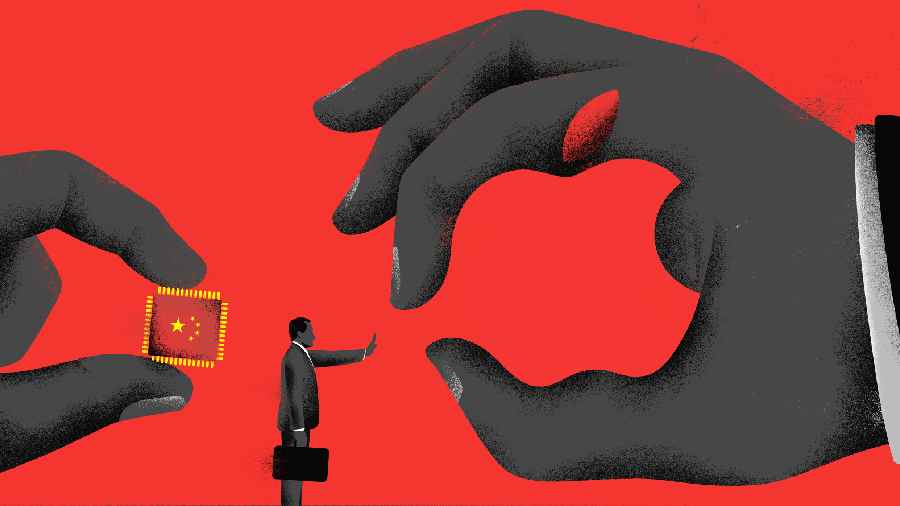Every September, Apple unveils its latest phones at its Silicon Valley campus. A few weeks later, tens of millions of its newest handsets, assembled by legions of seasonal workers hired by its suppliers, are shipped from Chinese factories to customers around the world.
But this year, a smooth rollout for the iPhone 14 was the latest casualty of the growing difficulties of doing business in China. Beijing’s no-holds-barred approach to stopping Covid-19 and heightened tensions with the US have forced Apple to reexamine major aspects of its business.
A recent outbreak of coronavirus cases in the region surrounding Apple’s largest iPhone factory — in Zhengzhou in central China — prompted local officials to order a seven-day lockdown.
This year, Apple has been the focus of a bipartisan intervention in Washington, where alarm over Beijing’s military provocations and technology ambitions has upended orthodoxy about free trade.
Word trickled out in March that Apple was in talks with an obscure Chinese memory chipmaker, Yangtze Memory Technology Corp., or YMTC, to supply components for the iPhone 14. That collided with work being done by a coalition of lawmakers and congressional aides. The commerce department issued restrictions that prohibited US companies from selling machinery to YMTC, making it difficult for Apple to go ahead with the deal.
It is no coincidence that Apple’s rise from near bankruptcy in the 1990s to the world’s most valuable company has closely followed China’s economic ascent. It pioneered a best-of-both-worlds business model: products designed in California were assembled inexpensively in China.
Apple raked in profits as China’s economy roared. But as US-China relations falter, and both governments meddle in Apple’s business, the company has gone from one of globalisation’s greatest success stories to a symbol of its fracture.
“Apple is discovering that geopolitics drive business models — not the other way around,” said Matthew Turpin, a fellow at the Hoover Institution, US.
China’s leader, Xi Jinping, has forced business leaders to reconsider long-held assumptions about operating in the country. For decades, economic growth was the Chinese government’s top priority. But Xi made it clear that security issues and the more ideological viewpoints of the party would take precedence over business concerns.
Apple depends on factories like the one in Zhengzhou, which is operated by Foxconn, its biggest assembly partner. When Covid-19 cases started to spike in the area, Foxconn walled its roughly 2,00,000 workers inside the grounds of a factory that can produce as much as 85 per cent of iPhones worldwide.
YMTC, the small Chinese chipmaker, was founded in 2016 with a $2.9 billion government investment and a mission to help reduce China’s dependence on foreign chipmakers.
Apple was in talks about a supply agreement with the Chinese firm. Memory chips, YMTC’s speciality, are one of the iPhone’s most expensive components, accounting for roughly 25 per cent of its material costs.
Because it would offer lower prices to gain market share, YMTC could help Apple pressure its Western suppliers to lower their costs, said Walter Coon of Yole Group, a market research firm.
But YMTC’s importance to China made it a target of US national security researchers. In 2020, a team led by James Mulvenon, a Chinese linguist and researcher at the US defence contractor SOS International, issued a 17-page report that detailed YMTC’s connections through its parent company, Tsinghua Unigroup, to entities that sold products to China’s military.
Mulvenon presented his findings to Capitol Hill. He outlined the risks YMTC posed because its government subsidies could empower it to undercut competitors on price. “It never made sense to cluster the entire supply chain inside a country that was the most potent cyberthreat to the United States,” Mulvenon said.
NYTNS











